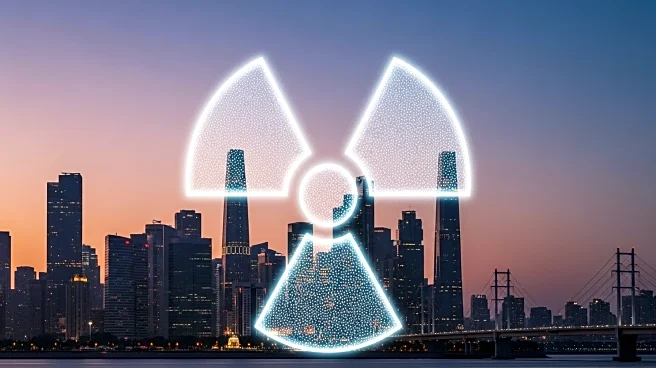What's Happening?
China is significantly expanding its nuclear energy capacity, which is crucial for global carbon markets and clean energy grids. Despite nuclear power being a major source of low-carbon electricity, it is largely excluded from voluntary carbon markets, weakening the business case for investment. The International Energy Agency calls for a doubling of nuclear capacity by 2050, emphasizing its role in meeting climate goals. Nuclear energy provides reliable baseload power, complementing variable renewables like wind and solar, and prevents millions of metric tons of CO2 emissions annually.
Why It's Important?
The exclusion of nuclear energy from carbon markets undermines efforts to meet global climate targets, as it is a proven decarbonization tool. This omission distorts market integrity and restricts investment in nuclear technologies, which are essential for reducing reliance on fossil fuels. Countries in the Global South could benefit from new nuclear technologies, but are pushed towards fossil fuels due to lack of access to carbon finance. Including nuclear in carbon markets would level the playing field and support innovation in clean energy technologies.
What's Next?
The global expansion of nuclear energy is expected to continue, with new designs like small modular reactors and advanced systems nearing commercial readiness. These technologies promise cleaner and more flexible applications, but require capital investment. The integration of nuclear into carbon markets could drive real decarbonization and support energy sovereignty for countries transitioning to clean energy.
Beyond the Headlines
The exclusion of nuclear energy from carbon markets is partly due to outdated perceptions tied to safety and public opinion. However, decades of evidence and new technologies have shifted the conversation, with climate science supporting nuclear as part of the solution. The European Union recognizes nuclear power as green, and climate policy must catch up to reflect scientific consensus.









